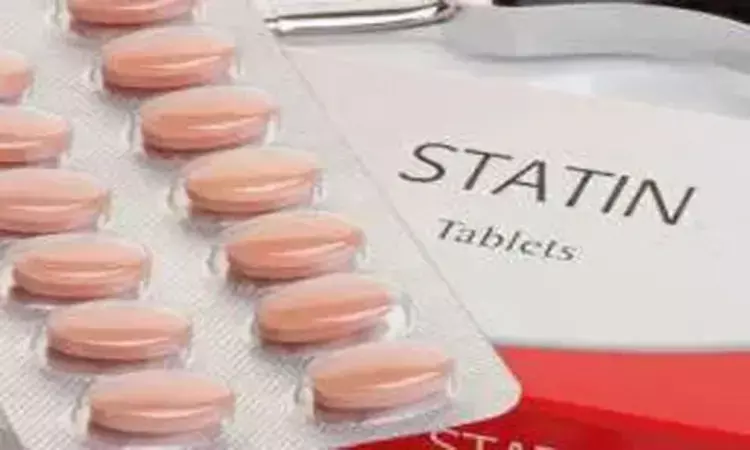- Home
- Medical news & Guidelines
- Anesthesiology
- Cardiology and CTVS
- Critical Care
- Dentistry
- Dermatology
- Diabetes and Endocrinology
- ENT
- Gastroenterology
- Medicine
- Nephrology
- Neurology
- Obstretics-Gynaecology
- Oncology
- Ophthalmology
- Orthopaedics
- Pediatrics-Neonatology
- Psychiatry
- Pulmonology
- Radiology
- Surgery
- Urology
- Laboratory Medicine
- Diet
- Nursing
- Paramedical
- Physiotherapy
- Health news
- Fact Check
- Bone Health Fact Check
- Brain Health Fact Check
- Cancer Related Fact Check
- Child Care Fact Check
- Dental and oral health fact check
- Diabetes and metabolic health fact check
- Diet and Nutrition Fact Check
- Eye and ENT Care Fact Check
- Fitness fact check
- Gut health fact check
- Heart health fact check
- Kidney health fact check
- Medical education fact check
- Men's health fact check
- Respiratory fact check
- Skin and hair care fact check
- Vaccine and Immunization fact check
- Women's health fact check
- AYUSH
- State News
- Andaman and Nicobar Islands
- Andhra Pradesh
- Arunachal Pradesh
- Assam
- Bihar
- Chandigarh
- Chattisgarh
- Dadra and Nagar Haveli
- Daman and Diu
- Delhi
- Goa
- Gujarat
- Haryana
- Himachal Pradesh
- Jammu & Kashmir
- Jharkhand
- Karnataka
- Kerala
- Ladakh
- Lakshadweep
- Madhya Pradesh
- Maharashtra
- Manipur
- Meghalaya
- Mizoram
- Nagaland
- Odisha
- Puducherry
- Punjab
- Rajasthan
- Sikkim
- Tamil Nadu
- Telangana
- Tripura
- Uttar Pradesh
- Uttrakhand
- West Bengal
- Medical Education
- Industry
Statins lower risk of advanced liver fibrosis in diabetes patients: Study

Italy: Statin use lowers the risk of cirrhosis and advanced liver fibrosis in type 2 diabetes (T2D) patients, finds a recent study in the journal Metabolism: Clinical and Experimental. The lower risk was specifically seen in younger patients and women.
Type 2 diabetes patients are at increased risk of both advanced liver fibrosis related to non-alcoholic fatty liver disease (NAFLD) and cardiovascular disease (CVD). Statin use is known to reduce the CVD incidence while evidence on its effect on NAFLD severity is limited. To fill this knowledge gap, Stefano Ciardullo and Gianluca Perseghin from Italy, performed a cross-sectional study performed using data from the 2017–2018 cycle of the National Health and Nutrition Examination Survey (NHANES).
It included adult patients with T2D and reliable vibration-controlled transient elastography (VCTE) results. Presence of liver fibrosis and steatosis were assessed by the median values of controlled attenuation parameter (CAP) and liver stiffness measurement (LSM) and, respectively. Patients with evidence of viral hepatitis and significant alcohol consumption were excluded.
The association between statin treatment and both steatosis and advanced (≥F3) liver fibrosis was evaluated using Logistic regression analysis after adjustment for potential confounders.
The study population consisted of 744 patients.
Key findings of the study include:
- NAFLD (CAP≥274 dB/m) was present in 74.9% of patients and 14.5% had advanced fibrosis (LSM ≥ 9.6 KPa).
- After adjustment for age, sex, race-ethnicity, BMI, albumin, total cholesterol, HbA1c, triglycerides and liver enzymes, statin use was associated with lower odds of advanced fibrosis (OR 0.35).
- No significant interaction was found between statin use and steatosis.
"Given the absence of approved therapies for NAFLD-fibrosis, it would be reasonable to initiate specific randomized controlled trials with statins," wrote the authors.
The study titled, "Statin use is associated with lower prevalence of advanced liver fibrosis in patients with type 2 diabetes," is published in the journal Metabolism: Clinical and Experimental.
DOI: https://www.metabolismjournal.com/article/S0026-0495(21)00052-4/fulltext
Dr Kamal Kant Kohli-MBBS, DTCD- a chest specialist with more than 30 years of practice and a flair for writing clinical articles, Dr Kamal Kant Kohli joined Medical Dialogues as a Chief Editor of Medical News. Besides writing articles, as an editor, he proofreads and verifies all the medical content published on Medical Dialogues including those coming from journals, studies,medical conferences,guidelines etc. Email: drkohli@medicaldialogues.in. Contact no. 011-43720751


